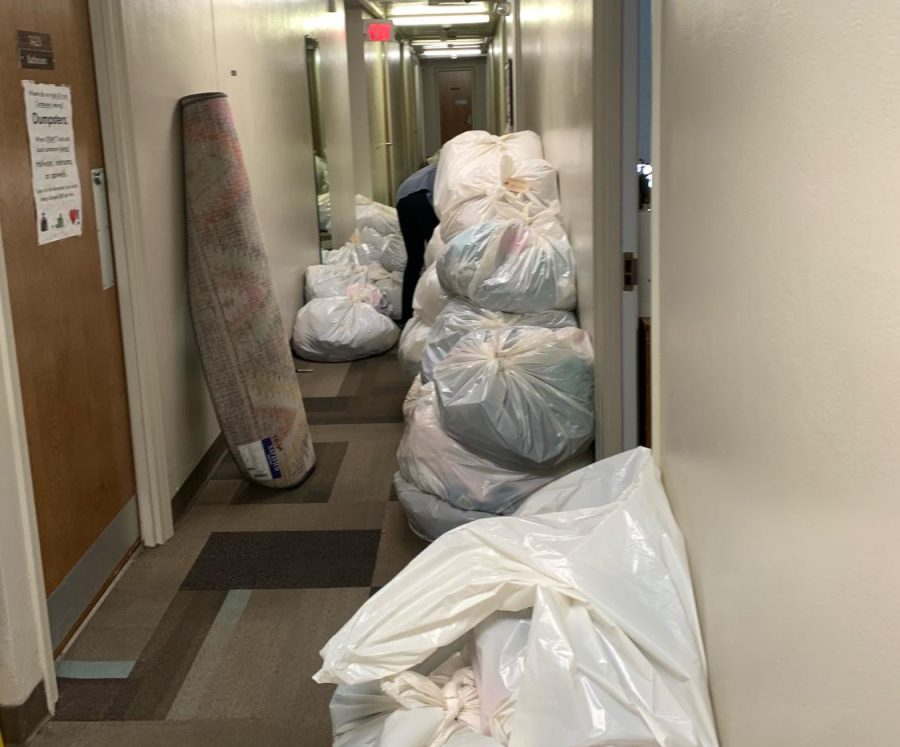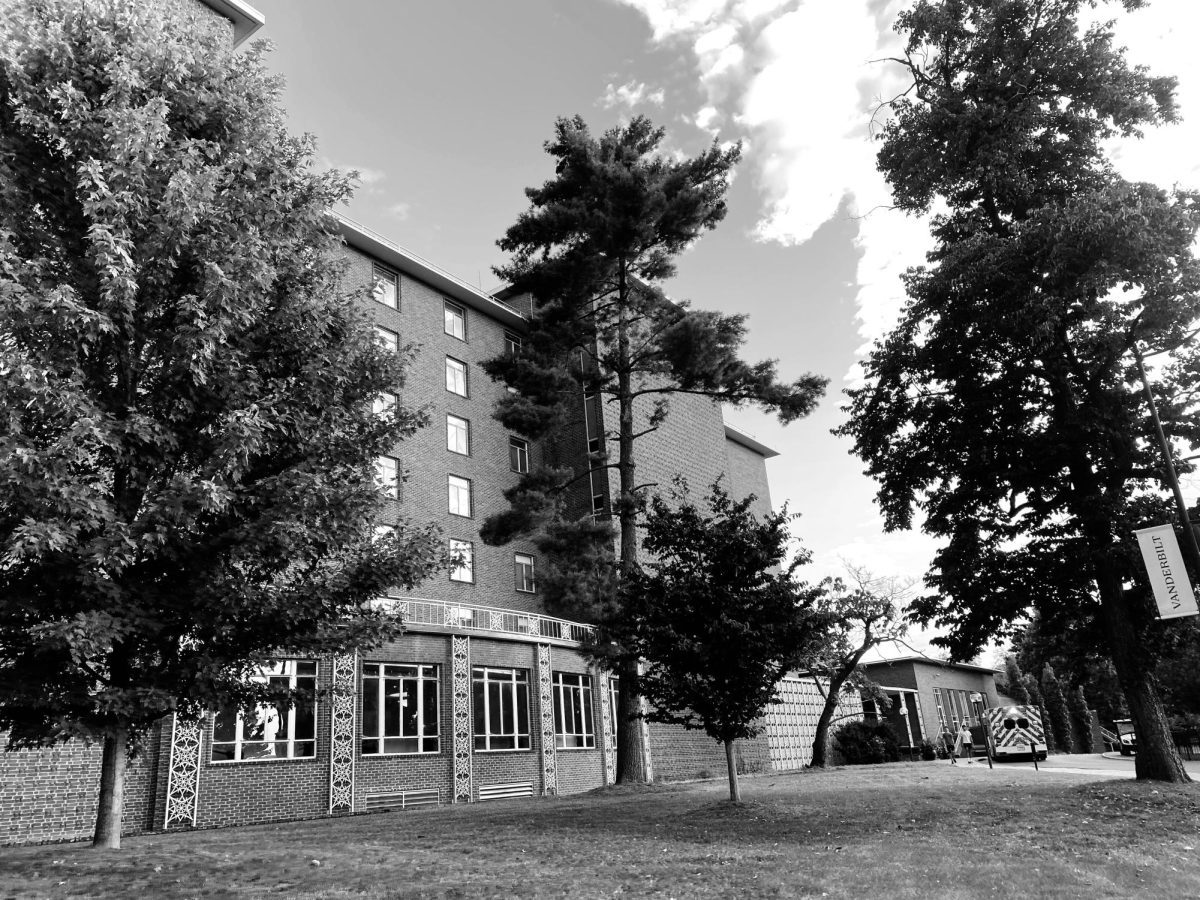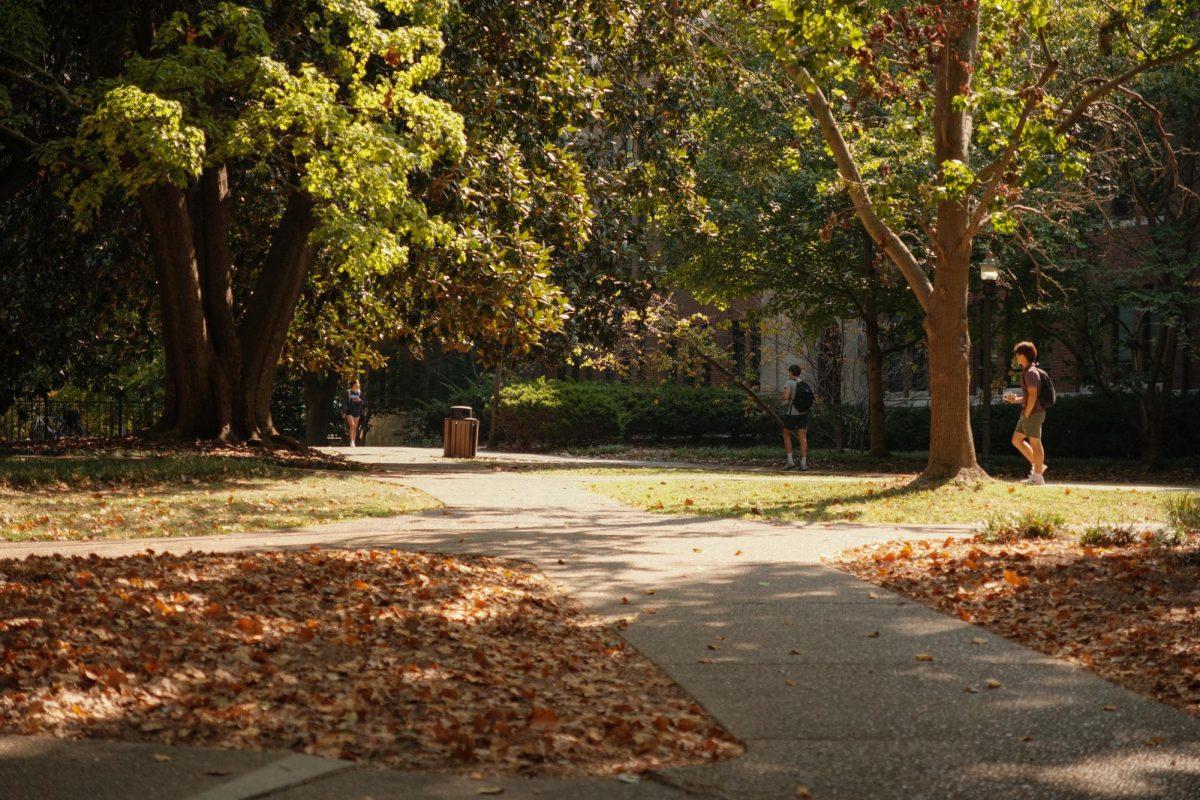UPDATED: This piece was updated on Feb. 14, 2022, to include the name of the third-party mattress source.
Following an initial infestation and treatment of bed bugs on the fourth floor of Lupton House in December 2021, students reported two further infestations on the same floor on Feb. 6. Eight students have been relocated to the fifth floor of Lupton for three weeks as Vanderbilt’s pest control team treats affected residences.
Sophomores Mackenzie Higgins and Alexanne O’Dell first discovered an insect, which they believed to be a bed bug, crawling across their floor on Feb. 6. After reporting the incident to Kerrie Turney, their area coordinator, she told them that the Vanderbilt pest control team would set traps in their rooms on Feb. 7 to confirm or deny a bed bug infestation. Throughout the process, Higgins and O’Dell expressed exasperation in the way the situation was handled.
“The next morning [Feb. 6], I went to class and was out of the room all day and came back that night and realized they hadn’t come yet to put any traps in. They just didn’t do anything,” Higgins said. “It was super weird to sleep in a room where we knew there were bed bugs, but they still weren’t doing anything about it.”
The university’s pest control team confirmed that the eight students’ four rooms were infested on Feb. 8. The students received an email on Feb. 8 from Turney directing them to vacate their rooms by the morning of Feb. 9.
Bed bug treatment typically takes 1-3 hours, according to Vanderbilt’s pest control team, and students were informed in an email from Turney that they could return to their rooms by the end of the day on Feb. 9. However, they were also told in the email that the treatment and relocation process would be repeated multiple times over the next month.
“I know this is going to be an incredible challenge,” Turney said in the email. “We need to do our absolute best to try and stick to the guidelines that pest control has given us.”
As such, Higgins and O’Dell told The Hustler that they are able and likely to choose to stay in their temporary residence continuously for the next three weeks, rather than moving in and out. Other students on the floor said they did not receive any communication about the infestation.
“We had to bag up all of our clothes, literally every single piece of clothing in our room, take everything out of the desk drawers, everything out from under our beds, anything touching the walls and basically do a complete move-out before 9 a.m. the next day,” Higgins said.
A university statement emailed to The Hustler said staff members have been in “constant communication” with affected students. However, Higgins and O’Dell said there has been a lack of clear communication, creating a major source of frustration throughout the process.
“They were kind of vague; at first, we didn’t even know where we were going. They just told us we had to move out of our rooms.” Higgins said. “We had to ask a lot of questions.”
Higgins and O’Dell also said the relocation process has negatively impacted their academic and social commitments, due to having to move out on short notice while remaining diligent in their schoolwork. Moreover, both Higgins and O’Dell said they were disappointed with the alleged lack of support provided by the university.
“It was a stressful situation for the school to put us in to not offer any resources or help, to not offer to contact our professors or help with that in any way,” O’Dell said. “I had two tests at the end of the week, but I spent Tuesday from 7 p.m. to 12 a.m. moving out and doing that whole process.”
The university statement said the bed bugs were likely introduced via mattresses that students rented from a third-party source, which Higgins said is Black Star Rentals. This company is student-run and rents full-sized beds to the Vanderbilt community. Higgins and O’Dell do not have the third-party mattresses, but their neighbors—who have also been relocated—do. In an email to The Hustler, George Victor, CEO of Black Star Rentals, said the company is in communication with the affected students and the university and are working to alleviate the problem. However, he said he thinks it is “extremely unlikely” that the bed bugs originated from Black Star mattresses.
“As a customer-first company, we immediately provided new beds for our two customers (roommates) who experienced an outbreak,” Victor said. “Our beds are all inspected upon pickup from customers in May, stored together during the summer, and thoroughly sanitized before going out to new customers in August. Further, we have no other customers who have experienced this issue, and our beds were delivered several months ago (in August 2021).”
The university said in the statement that the situation has been “resolved” on the floor by treating the affected rooms and replacing these mattresses with the original ones that came with the room. While O’Dell said she is optimistic about the treatment being successful, Higgins expressed more skepticism.
“Even if that was the source of the bed bugs, the fact that they have treated them and they have come back multiple times just shows that whatever treatment they were doing was inadequate or that the bed bugs were also in other places and weren’t coming from those beds,” Higgins said. “I feel like other people in the building have those mattresses, so why don’t they have bed bug bites if that’s where they’re coming from?”
In December 2017, The Hustler reported on another infestation in the now-demolished Carmichael Towers. While bed bugs are not known to spread diseases to humans, the insect’s bites cause red, itchy welts. If a student believes their room is infested with bed bugs, the statement reads that students should immediately submit a maintenance request form to prevent an infestation from spreading.










